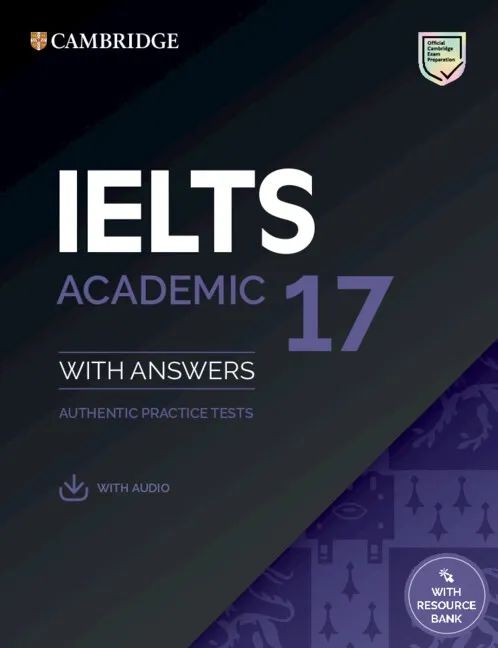雅思双边讨论类大作文教育类话题 孩子应该尽早上学 7分范文分析
2019-12-27 11:53:51来源:网络作者: 景景阅读量:
雅思双边讨论类大作文教育类话题 孩子应该尽早上学 7分范文分析 大家遇到类似的话题如何写作呢?你是怎么理解的呢?如何分析?本文小编带大家一起来讨论这个问题,希望能帮到大家!
Nowadays some people say that children should go to school as young as possible. While others believe that children should go to school when they are at least seven years old. Discuss both views and give your own opinion. (题目来源:2019年12月14日亚太雅思大作文)

图片来源网络
1、题目大意
有人认为孩子应该尽可能早的上学,而其他人认为孩子应该至少七岁以上才能上学讨论双方观点并给与你个人观点.
2、写作思路
两种观点均缺乏合理性。
第一种观点的不合理在于我们没有办法定性什么样的学生情况可以被认定为是“尽可能早”。“可能”这个概念太过模糊,即便相关的体系测试系统能够检测出孩子是否已经心智成熟到可以接受教育,也无法准确检测他们是否可能在入学后长期专注,或者是过早接受教育会不会由于对他们童年时期自由度的过多限制而对未来产生影响。
虽然这意味着孩子应该被给与一个上学的年龄限制,但是这个限制也不应该太绝对。科学家和人类学家可能给予了一个很科学的7岁后上学的建议,但这个建议不应该是一个特别固定的状态,因为它并没有涵盖对于不同地区孩子的具体情况,以及孩子在特定地区所获得教育的具体内容。因而,固定的入学年龄应该在考量到这些决定因素后来被具体制定,可以略早也可以略晚。
3、提纲

4、高分范文
I would discuss in this essay why neither of the two views is persuasive enough, and I certainly agree that there should be a minimum age for the school access but it should not be always that fixed.
The suggestion that children should go to school as soon as possible would sound not so doable because of its ambiguity. It sounds reasonable that children are allowed to go to school when they are ready to accept rudimentary education mentally and physically, and that is why people think they are supposed to enjoy their study life “as soon as possible”. Whereas the only problem is that no one can define a system of differentiation towards this. Just what type of personal condition is “possible” enough to go to school? The quantification fails to be set up because of the obscurity of this definition. It is true that one could be testified with related examining system to ensure whether he or she is qualified enough to be injected with school knowledge and whether one has the basic logic thinking, but the related measurements can never be that sound to guarantee such kids can always focus on their schooling if put in primary education when they are too young, or even more severe, they would not deprived of their freedom in their early childhood and this would not be harmful to their future. If so, that is certainly not “possible”, and the potential hazards would be certainly hidden if the children were truly sent to school too soon.
The concern elicited above lead to why some consider the regulation of setting up a minimum age limit for children to go to school, but it, actually, should not be implemented too absolutely to be always seven. I have never doubted this restriction of age may have been examined by experts or anthropologists and it seems to be somewhat the most scientific period to provide most infants with elementary education since they may be mature enough to get access. However, would it be too strict a rule for the entire world to obey without including the consideration towards, say, the concrete contents of different types of education, or other tangible conditions of the next generations in specific locations? What the policy has failed to be practical is that it just has fixed the minimum age of students, but not unified the education modes or other related standards at the same time:rules could certainly be relaxed if the first-step education in a country is relatively easy involving mostly the playful elements that are suitable even if the education receivers are much younger; sometimes the limitation has to be more rigorous when children are inculcated with things that are above-average difficult.
In conclusion, I would agree that related criteria should indeed be given on what age is the best timing for schooling, but must be well-rounded enough by considering as many determinants as we can.
5、相关词汇
Persuasive 有说服力的
Minimum age 最低年龄
Doable 可行的
Ambiguity 模糊的
Rigorous 严格的
Inculcate 灌输
相关文章

雅思高分范文分享:城市居民身体锻炼不够的原因的解决办法
题目 It is difficult for people in cities to get enough physical exercise. What are the causes and what solutions could be taken to solve the problem? (2020/7/9) 城市居民身体锻炼不够的原因...
阅读: 168

雅思大作文7分范文及解析:难以运动的原因和解决办法
报告类大作文,健康类话题 It is difficult for people living in cities to get enough physical exercise. What are the causes and what solutions can be taken to solve the problem? 题目来源:...
阅读: 186

英文文章分析:Biden’s Gas Tax Holiday Wouldn’t Make Much Difference
本文虽然不是editorial社论文章,但其风格是很相似的,段落简短,这不仅是报刊文章的风格,也使得观点更为明确突出 President Biden says he’s still committed ...
阅读: 70

雅思大作文7分范文及解析:好的教育比个人能力更重要
观点类大作文,教育类话题 Good teaching is more important for academic success than individual ability. To what extent do you agree or disagree? 题目来源:2022年7月7日大陆雅思大作...
阅读: 265

剑17雅思真题PDF下载打印版音频限时免费领取!
剑桥雅思真题第17版包含听力、阅读、写作、听力四个部分。 听力四个Section选择题频出,Section也是难度plus,值得研究;阅读三个Passage偏向历史话题;小作...
阅读: 101
热门文章
-
1.雅思高分范文分享:城市居民身体锻炼不够的原因的解决办法
- 1

- 雅思高分范文分享:城市居民身体锻炼不够的原因的解决办法
- 2022-07-12
- 1
-
2.雅思大作文7分范文及解析:难以运动的原因和解决办法
- 2

- 雅思大作文7分范文及解析:难以运动的原因和解决办法
- 2022-07-12
- 2
-
3.英文文章分析:Biden’s Gas Tax Holiday Wouldn’t Make Much Difference
- 3

- 英文文章分析:Biden’s Gas Tax Holiday Wouldn’t Make Much Difference
- 2022-07-12
- 3
-
4.雅思大作文7分范文及解析:好的教育比个人能力更重要
- 4

- 雅思大作文7分范文及解析:好的教育比个人能力更重要
- 2022-07-12
- 4
-
5.剑17雅思真题PDF下载打印版音频限时免费领取!
- 5

- 剑17雅思真题PDF下载打印版音频限时免费领取!
- 2022-06-23
- 5
-
6.剑17写作范文及解析 | Test2 孩子花大量时间用手机
- 6

- 剑17写作范文及解析 | Test2 孩子花大量时间用手机
- 2022-06-23
- 6
-
7.雅思大作文7分范文:互联网替代线下的利弊
- 7

- 雅思大作文7分范文:互联网替代线下的利弊
- 2022-01-13
- 7
-
8.雅思大作文解析:互联网替代线下的利弊
- 8

- 雅思大作文解析:互联网替代线下的利弊
- 2022-01-13
- 8
-
9.雅思大作文7分范文:家庭聚餐的传统变少了
- 9

- 雅思大作文7分范文:家庭聚餐的传统变少了
- 2022-01-12
- 9
-
10.雅思大作文解析:家庭聚餐的传统变少了
- 10

- 雅思大作文解析:家庭聚餐的传统变少了
- 2022-01-12
- 10
热门图文
-

雅思利弊类大作文社会类话题:线上购物vs线下购物
2019-12-31
-

雅思大作文7分范文及解析:住在大城市可能对人们的健康有害
2020-05-09
-

2020年雅思作文新题预测 有关疫情思维导图分享!
2020-02-17
-

雅思大作文6分范文分析-“未来没人会买纸质报纸或书籍”
2020-06-29
-

2.27大陆雅思大作文解析:淡水需求激增的原因和解决办法
2021-02-28
-

1月18日雅思大作文范文及解析:孩子有太多自由
2020-01-19
